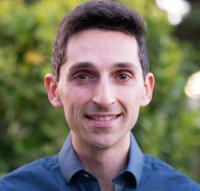
Research Topics
Our research aims to decipher the neural algorithms underlying the learning of novel skills, using multi-site in vivo two photon imaging and optogenetics during behavioral learning, computational circuit modeling, and viral-genetic neuroanatomical techniques. We've homed in on two major brain centers of learning, the neocortex and cerebellum, which compose 99% of all human neurons and are interconnected by canonical recurrent circuits that are universally conserved across all mammals. By observing and perturbing the interactions between these brain areas during learning, characterizing their connectivity, and modeling the system dynamics, we hope to extract the basic neural computations that support our remarkable ability for general learning, potentially shedding light on how these processes are disrupted in neurological disorders.
Biography
Dr. Wagner joined NINDS as a Stadtman Investigator in August 2021. Before joining the NIH, Dr. Wagner studied bioengineering at Harvard University, researching human motor control with Maurice Smith during a combined B.A./M.S., then obtained a Ph.D. in Neuroscience from Stanford University under Mark Schnitzer, as well as postdoctoral training with Liqun Luo also at Stanford, developing novel strategies to study cortex-cerebellum circuitry in learning and behaving mice.
Selected Publications
- Garcia-Garcia MG, Kapoor A, Akinwale O, Takemaru L, Kim TH, Paton C, Litwin-Kumar A, Schnitzer MJ, Luo L, Wagner MJ. A cerebellar granule cell-climbing fiber computation to learn to track long time intervals. Neuron. 2024.
- Wagner MJ, Savall J, Hernandez O, Mel G, Inan H, Rumyantsev O, Lecoq J, Kim TH, Li JZ, Ramakrishnan C, Deisseroth K, Luo L, Ganguli S, Schnitzer MJ. A neural circuit state change underlying skilled movements. Cell. 2021;184(14):3731-3747.e21.
- Muscinelli SP, Wagner MJ, Litwin-Kumar A. Optimal routing to cerebellum-like structures. Nat Neurosci. 2023;26(9):1630-1641.
- Shuster SA, Wagner MJ, Pan-Doh N, Ren J, Grutzner SM, Beier KT, Kim TH, Schnitzer MJ, Luo L. The relationship between birth timing, circuit wiring, and physiological response properties of cerebellar granule cells. Proc Natl Acad Sci U S A. 2021;118(23).
- Rudolph S, Badura A, Lutzu S, Pathak SS, Thieme A, Verpeut JL, Wagner MJ, Yang YM, Fioravante D. Cognitive-Affective Functions of the Cerebellum. J Neurosci. 2023;43(45):7554-7564.
Related Scientific Focus Areas


Biomedical Engineering and Biophysics
View additional Principal Investigators in Biomedical Engineering and Biophysics

This page was last updated on Monday, July 22, 2024